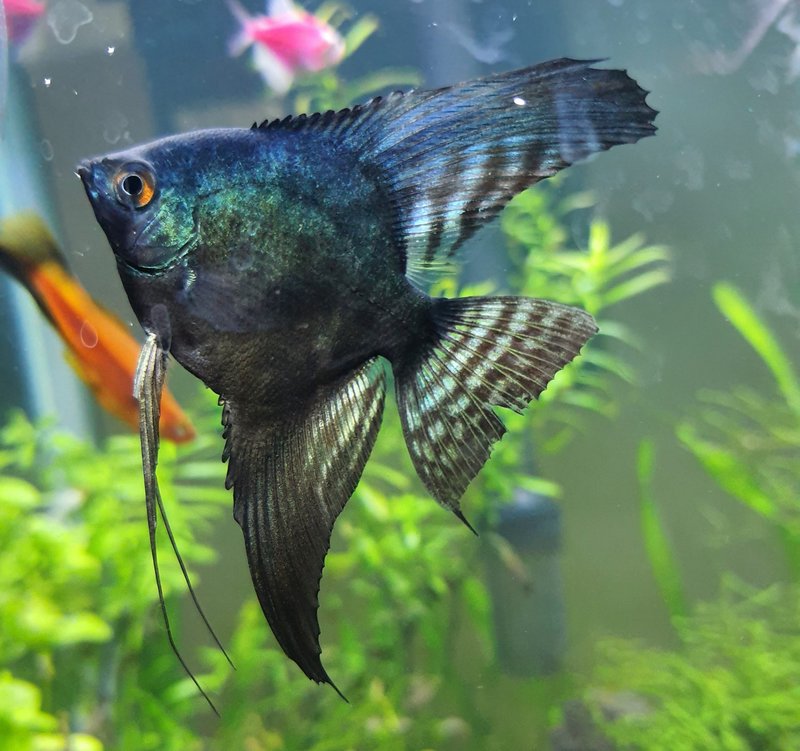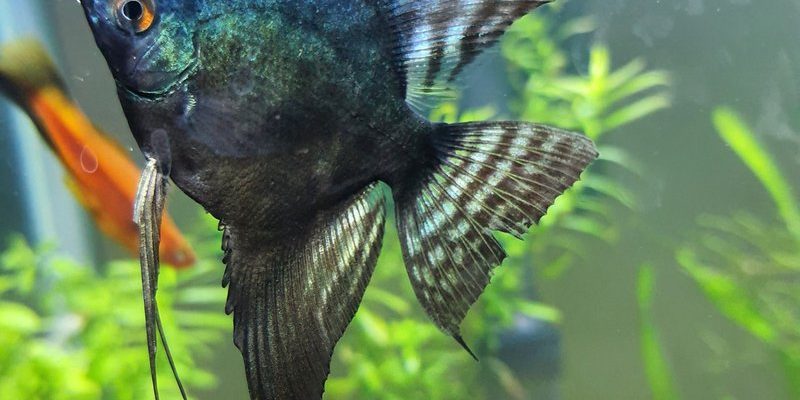
Marine angelfish are not just beautiful; they have unique personalities, making them a favorite among aquarium enthusiasts. However, their lifespan can vary quite a bit based on several factors. Let’s dive deeper into what influences how long marine angelfish live in aquariums and how you can help them thrive.
Understanding Marine Angelfish Lifespan
When we talk about the lifespan of marine angelfish, we’re looking at a range of 5 to 15 years. This variation can depend on various factors such as species, care, and environment. Some types, like the Emperor Angelfish, can live up to 15 years, while others might only reach their fifth birthday in less-than-ideal conditions.
Think about it this way: just like humans, the right conditions can make a world of difference. Provide a well-maintained aquarium, appropriate water parameters, and a decent diet, and you might just have a long-lasting relationship with your angelfish buddy!
Species Differences
Different species of marine angelfish can have different lifespans. For example:
- Emperor Angelfish: Approximately 15 years.
- Queen Angelfish: Ranges between 10 to 15 years.
- Coral Beauty: Typically lives for about 5 to 8 years.
Each species has unique needs and characteristics, which can affect how long they live. So, if you’re set on a particular species, it helps to know what you’re getting into!
Factors Influencing Lifespan
Several factors play a significant role in how long your marine angelfish will thrive. These include water quality, tank size, diet, and social environment.
Water Quality
Water quality is fundamental for any fish’s health. Think of it like your home’s atmosphere. If it’s polluted or uncomfortable, you wouldn’t be happy living there, right? For marine angelfish, you’ll want to keep:
- Ammonia: 0 ppm
- Nitrite: 0 ppm
- Nitrate: Below 20 ppm
Regular testing and changes will keep your fish from experiencing stress and health issues, which could cut their lifespan short.
Tank Size
Tank size might seem like a minor detail, but it’s crucial. A larger tank provides more swimming space and helps maintain stable water conditions. Marine angelfish are known to explore and sometimes get territorial. Ideally, you should have at least a 50-gallon tank for one angelfish, and they’ll be much happier in a spacious environment.
Diet and Nutrition
What your marine angelfish eats can directly impact their lifespan. A balanced diet not only keeps them healthy but also supports their immune system. Here’s the thing: just tossing in some fish flakes isn’t enough.
Marine angelfish thrive on:
- Quality flakes or pellets
- Frozen or live foods like brine shrimp and spirulina
- Vegetable matter, like algae or seaweed
A varied diet will ensure they get all the nutrients they need, promoting a longer, healthier life.
Social Environment
Marine angelfish can be social or territorial, depending on their species. It’s vital to choose tankmates carefully. Some can be aggressive, leading to stress, which can shorten lifespans. Here are a few general tips:
- Choose peaceful species that won’t invade their space.
- Provide hiding spots with rocks or plants.
- Introduce new fish slowly to prevent territorial disputes.
Creating a friendly community will help your angelfish feel safe and happy, which translates to a longer life.
Common Health Issues
Like any pet, marine angelfish can face health problems that might threaten their lifespan. Some common issues include ich, fin rot, and poor water quality-related diseases. Recognizing the signs early can save your fish.
Recognizing Illness
Here are a few symptoms to watch for:
- White spots on their body (ich)
- Lethargy or hiding more than usual
- Changes in appetite
If you notice any of these signs, it’s essential to act fast. Quarantine sick fish and treat them appropriately, ensuring the rest of your tank stays healthy.
Enhancing Lifespan with Proper Care
To give your marine angelfish the best chance at a long life, it requires routine upkeep and attention.
Regular Maintenance
Keeping up with water changes, monitoring conditions, and ensuring a balanced diet are key steps. You should aim to change 10-20% of the water weekly to keep it clean and free from harmful substances.
Adequate Filtration
A reliable filtration system is non-negotiable. It keeps the water clean and ensures beneficial bacteria thrive. Make sure it’s sized appropriately for your tank and check it regularly for clogs or issues.
Understanding how long marine angelfish live can significantly help you in providing the best care for them. Whether it’s through meticulous attention to water quality, diet, or social environments, these efforts can lead to a vibrant and lively fish that brings joy to your aquarium for years.
It’s fulfilling to watch them swim and interact in their environment, almost like having a slice of ocean paradise at home. So, if you’re ready for the adventure of keeping a marine angelfish, you’re in for a colorful and rewarding experience! Remember, a happy angelfish is a healthy angelfish, and that translates to a longer, joyful life in your aquarium.

